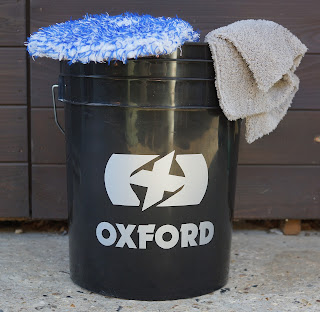Sometimes it's not the nice new shiny kit that brings the most joy, nor a personal best, or an epic ride. Sometimes, it's getting a wayward, recalcitrant component to behave. Ideally from the comfort of home-an outpouring of relief usually follows the latter scenario.
Recent little victories include getting Ursula's Microshift bar end shifters to play properly with the old girl's STX and Tiagra mechs, upgrading Denise's Hollowtech II preload to an aluminium alloy 10mm Allen key, meaning I can largely forget about the little plastic tool bit that invariably gets lost behind the workbench, or similarly inaccessible area of your workspace.
Last but not least, there's the wired Remote for the Magicshine Ray2600, which means I can whip the power up and down more readily on the fly-great for exploring the lanes in the dead of night.
After an unexpected cold snap prompting me to default to Ursula and the spikes, things thawed a little and I revisited the idea of Denise and gravel tyres. I’d stuck with the Continental Pure Contact, which have proven themselves incredibly dependable in all contexts, meaning I could just hoss along, confident I’d return from a ride without flatting-particularly welcome when pressed for time. Extra UK have sent me some Pirelli Cinturato Gravel M (700x40c).
These are a tubeless ready mixed terrain gravel tyre designed for mixed conditions, wet, or dry-hence their appeal. The Cinturato Gravel M employ the Speed GRIP compound, which promises mechanical resistance, chemical grip, and similarly important, impressive puncture resistance. This is a nylon belt that runs bead to bead, rather than just the centre strip, so I’m hoping they deliver, not least since hedge cutting season has returned with a vengeance.
They were surprisingly easy to sweep aboard the Ryde rims-read thumbs, no tyre levers, pressure ranges closely mirror those of the WTB Nano WTB Nano TCS Tyre | cycling-not-racing, as does the tread pattern. They’re 14g heavier at 513g, but still a very respectable, dare I say reassuring.
Given a marked shift to milder conditions, I also took it as my cue to switch Ursula back from the Schwalbe Ice Spiker to the Continental Cross Kings. Doing so also revealed a little slop in the Hollowtech II bearings, which may have also contributed to temperamental shifting- out came the Oxford Torque R10, which tackles most jobs nicely, including those with higher torque fasteners-no issues removing the crank pinch bolts. A judicious turn of the M20 preload and these were nipped snug, then fully home with a torque wrench...Time to hit the lanes and trails
Wouldn’t you know it, the front mech was misbehaving again. I released a smidge of tension from the STX’s pinch bolt Ursula’s front mech, then released the Microshift bar end lever’s tension fractionally- bingo up and down without missing a beat. Nothing serious, but these units seem more highly strung than their Centos 4700 counterparts. I also raised the saddle by a few millimetres, which seemed optimal. Talking of tools here’s Steve’s review of the Oxford Torque Slimline 12 https://www.sevendaycyclist.com/oxford-torque-slimline-12-co2-multitool
The milder conditions have allowed ¾ lengths It’s not been sufficiently mild for short sleeve jerseys and arm warmers, but layering is the key to enjoying early season and autumn.
The ability to whip a layer on, or off to counter a sudden change in weather is good at any point- micro jackets will protect against unexpected showers and sudden, chill winds. Lighting is also very necessary since while nights and mornings are getting longer and arriving earlier, it's easy to get caught out. Six months or so hence, I’m suitably impressed by Shimano’s most recent incarnation of their Nexus Dynohub. Shimano Nexus DH-UR700-3D Dynamo Hub | cycling-not-racing
Though less mucky than midwinter, the early season still calls for regular bike cleaning. Oxford Products have sent me this huge cleaning buckets, which makes cleaning a big fleet (and indeed, other vehicles) a more time-efficient task.
The bucket has a grit grate to stop gritty, muck stuff being redistributed around the bike (or another vehicle), there’s also a wash mitt and microfibre cloth. I’ve already given the KA and Micra a good wash n’ waxing to purge the witches brew of slurry and road salt and the 20-litre bucket makes the job much quicker-no need to run indoors to fill mid-way through.


















